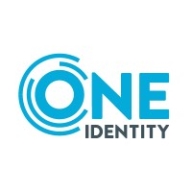

Splunk Enterprise Security and syslog-ng compete in the security information and event management category. Splunk Enterprise Security holds an advantage in comprehensive analytics and scalability, while syslog-ng excels in data collection and cost-effectiveness.
Features: Splunk Enterprise Security provides advanced data correlation, customizable dashboards, and robust threat intelligence. Syslog-ng is known for lightweight log management, high-speed data transportation, and flexible input/output capabilities.
Room for Improvement: Splunk Enterprise Security could improve its deployment process, reduce high initial costs, and enhance user-friendliness. Syslog-ng might benefit from enhancing its analytics capabilities, expanding support for complex architectures, and improving its incident response features.
Ease of Deployment and Customer Service: Splunk Enterprise Security involves a complex deployment but is supported by extensive documentation and responsive technical support. Syslog-ng offers a simpler setup with broad compatibility and easier integration into existing architectures.
Pricing and ROI: Splunk Enterprise Security necessitates higher initial setup costs but promises substantial ROI through its analytical capabilities. Syslog-ng presents a lower-cost option with a compelling cost-to-benefit ratio, delivering efficient log management and data handling for budget-conscious entities.
| Product | Market Share (%) |
|---|---|
| Splunk Enterprise Security | 7.5% |
| syslog-ng | 2.3% |
| Other | 90.2% |


| Company Size | Count |
|---|---|
| Small Business | 110 |
| Midsize Enterprise | 50 |
| Large Enterprise | 257 |
| Company Size | Count |
|---|---|
| Small Business | 3 |
| Midsize Enterprise | 2 |
| Large Enterprise | 3 |
Splunk Enterprise Security delivers powerful log management, rapid searches, and intuitive dashboards, enhancing real-time analytics and security measures. Its advanced machine learning and wide system compatibility streamline threat detection and incident response across diverse IT environments.
Splunk Enterprise Security stands out in security operations with robust features like comprehensive threat intelligence and seamless data integration. Its real-time analytics and customizable queries enable proactive threat analysis and efficient incident response. Integration with multiple third-party feeds allows detailed threat correlation and streamlined data visualization. Users find the intuitive UI and broad compatibility support efficient threat detection while reducing false positives. Despite its strengths, areas such as visualization capabilities and integration processes with cloud environments need enhancement. Users face a high learning curve, and improvements in automation, AI, documentation, and training are desired to maximize its potential.
What Are the Key Features of Splunk Enterprise Security?In specific industries like finance and healthcare, Splunk Enterprise Security is instrumental for log aggregation, SIEM functionalities, and compliance monitoring. Companies leverage its capabilities for proactive threat analysis and response, ensuring comprehensive security monitoring and integration with various tools for heightened operational intelligence.
Optimizing SIEM
syslog-ng is the log management solution that improves the performance of your SIEM solution by reducing the amount and improving the quality of data feeding your SIEM.
Rapid search and troubleshooting
With syslog-ng Store Box, you can find the answer. Search billions of logs in seconds using full text queries with Boolean operators to pinpoint critical logs.
Meeting compliance requirements
syslog-ng Store Box provides secure, tamper-proof storage and custom reporting to demonstrate compliance.
Big data ingestion
syslog-ng can deliver data from a wide variety of sources to Hadoop, Elasticsearch, MongoDB, and Kafka as well as many others.
Universal log collection and routing
syslog-ng flexibly routes log data from X sources to Y destinations. Instead of deploying multiple agents on hosts, organizations can unify their log data collection and management.
Secure data archive
syslog-ng Store Box provides automated archiving, tamper-proof encrypted storage, granular access controls to protect log data. The largest appliance can store up to 10TB of raw logs.
We monitor all Log Management reviews to prevent fraudulent reviews and keep review quality high. We do not post reviews by company employees or direct competitors. We validate each review for authenticity via cross-reference with LinkedIn, and personal follow-up with the reviewer when necessary.